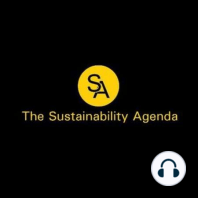37 min listen

Episode 167: Interview with Professor Daniela Gabor on funding the transition to a low carbon economy, first aired June 2021
Episode 167: Interview with Professor Daniela Gabor on funding the transition to a low carbon economy, first aired June 2021
ratings:
Length:
65 minutes
Released:
Dec 29, 2022
Format:
Podcast episode
Description
In this fascinating interview, first aired in June 2021, Professor Daniela Gabor discusses the eye-opening sums of money needed to achieve a transition to a low carbon economy – $1 trillion-$2 trillion a year to achieve net zero emissions by mid-century, according to some estimates– and how this can be funded. She explores the evolving relationship between the public sector and private finance – a renewed partnership—and how to assure that any new flows of private capital go into genuine green investments, rather than greenwashing. At the heart of this discussion: Daniela’s recent research on investors’ plans to to “escort and derisk” private capital investments in the global south. Daniela Gabor is associate professor in economics at the University of the West of England, Bristol. She holds a PhD in banking and finance from the University of Stirling (2009). Her main interests are in macro-finance, monetary theory and central banking and she has published on central banking in crisis, on the governance of global banks and the IMF, and on shadow banking and repo market. She has a special interest in the way finance is being restructured to deliver on current environmental goals.
Released:
Dec 29, 2022
Format:
Podcast episode
Titles in the series (100)
Episode 10: Paul Dickinson | The crucial importance of corporate climate change data: Paul Dickinson founded CDP, formerly the Carbon Disclosure Project, in 2000 with a vision to help the global economic system operate within sustainable environmental boundaries, and to prevent dangerous climate change. CDP manages a data platform that ga by The Sustainability Agenda